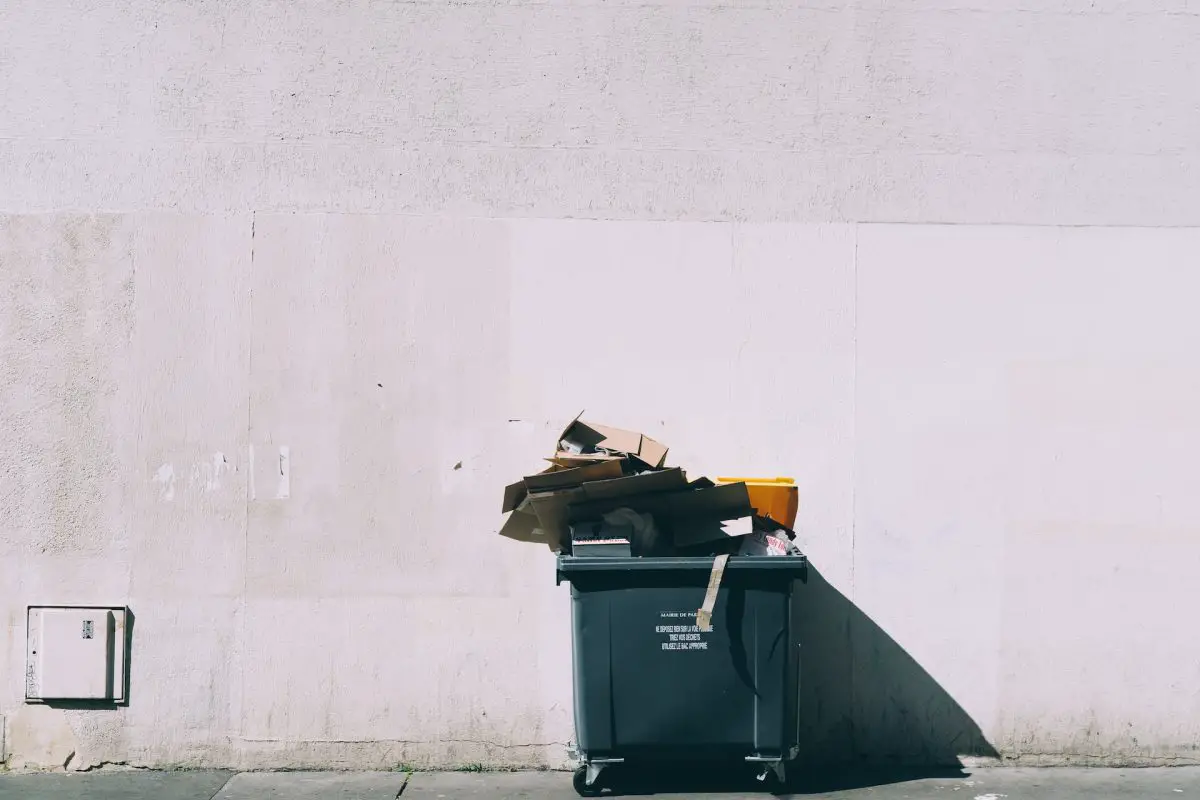Hotels, restaurants, schools, office buildings, and other commercial buildings can generate significant amounts of waste. How can these facilities manage their amounts of materials and waste, reduce costs, and improve sustainability? Here is our four-point recycle guide for commercial buildings.
Only in America, 4.9 pounds of waste are produced daily, which means 1,788.5 pounds annually!
Why should we reduce waste? We all produce waste, so we all are responsible for reducing it. If waste isn’t recycled properly, it ends up in a landfill. Landfill space in the USA is reducing at a significant rate, so the ecological effect of producing excess or waste is a lot more than the space occupied in landfills. But the actual impact is the carbon emissions related to creating waste, using, transporting products, and processing the waste before it’s placed in the landfill. Once the waste is placed in the landfill, it’s a lost resource. And pretty much of the waste that usually goes to landfills can be recycled or reduced.
How to recycle correctly
Recycling is essential to all of us – or should be. Recycling is the first step to reducing waste, but we should do it right. If businesses and communities added guidelines about recycling correctly, people would know how to do it right. Otherwise, it would be a challenge. However, let’s make it simple.
Most people recycle, but many are surprised that they’re doing it wrong! Most of the materials thrown in the bin are contaminated. For example, if you recycle a plastic bag, you should know that it cannot contain any traces of liquids or food leftovers. Some people even recycle materials directly in plastic bags! But this is entirely wrong, as those plastic bags often block the recycling machines. Research your local county waste department and find out what you can recycle near you.
For example, to understand what you can recycle at work, your company must ask their recycling carrier what is accepted and what isn’t. If your company doesn’t have machines for recycling, unfortunately, you’re in the wrong place.
Don’t Wish-Cycle
What is whish-cycle? You might not have an idea about what wish-cycling is, but if your desire is to be environmentally friendly, you should first know that wish-cycling is a serious growing problem. It implies severe damage to our planet. Wish-cycling is the habit of throwing items in the recycling bin, hoping they’ll be recyclable. It’s a common mistake that everyone makes; you might have done it too.
Imagine this: you’ve just finished your Starbucks to-go coffee, and now, you wonder if it’s recyclable or not. It’s plastic, after all. What about the pizza box full of grease or broken glass? All of these questions are extremely difficult to answer.
What to do to avoid wish-cycling
- Consult your local waste authority and learn your recycling rules.
- Learn the materials that aren’t typically recyclable.
- Give your bottles a rinse before throwing them in the bin to avoid contamination.
- Don’t recycle wet paper! The fibers will break down and make it impossible to recycle.
- Compostable plastic DOES NOT MEAN RECYCLABLE! These materials can only be thrown in certified compost amenities.
- Keep your recyclables loose.
- Packaging made of mixed materials is pretty hard to recycle. The safest bet is to throw them in the regular bin.
- Plastics with the recycling code (1, 2, or 5) can be recycled.
As much as we would like to recycle, the truth is that most materials aren’t recyclable. Be careful! There’s a significant difference between recycling and recyclable. Wish-cycling risks contaminating the entire bin, so if in doubt, throw it in the regular trash!
Benefits of addressing waste in your business
Until now, you might not have paid much attention to the waste your company produces. Most organizations aren’t establishing a system for recycling or removing trash. The greater the attention is paid to the waste produced, the bigger the benefits of creating a waste reduction program in your company.
Increased recycling in your business can save you money in the long term. Understanding the types and amounts of waste your company produces will make you more knowledgeable and help you find recycling services that fit your needs and more ways to reduce costs. Managing waste in your organization will enhance sustainability, boost your company’s image, attract clients, and positively influence employees. Waste reduction and recycling provide significant potential for reducing gas emissions. Also, reusing and recycling save natural resources like water, trees, and metal. Partnering with a reliable commercial waste collection service can streamline your recycling efforts and waste management, ensuring that recyclable materials are efficiently collected, processed, and reused.
Get others involved in your recycling plans
If you have an existing team in your company, work together to aim higher! Add a focus on recycling prevention to your business team members. It means bringing additional team members with a focus on recycling. If it’s needed, create a new team of responsible people who like to plan, design, and implement waste reduction activities.
As you all work together, it’s essential to identify everyone’s responsibilities. Set short-term recycling goals, gather and assess information, and promote the program to other employees. Most importantly, educate them on how to participate.
Set goals – Having goals gives your company’s team a clear understanding of what they’re working to accomplish and how they are progressing. Prioritize activities for preventing waste and expand your recycling programs, if necessary.
Final Thoughts on Our Recycle Guide For Commercial Buildings
Last, but not least, share your success with others! Consider conducting reviews of your waste management efforts and tell your story. Maybe this way, you’ll encourage others to also start waste management programs in their companies! And don’t forget, always look to expand your recycling programs, and evaluate what’s working and what needs to be improved.
